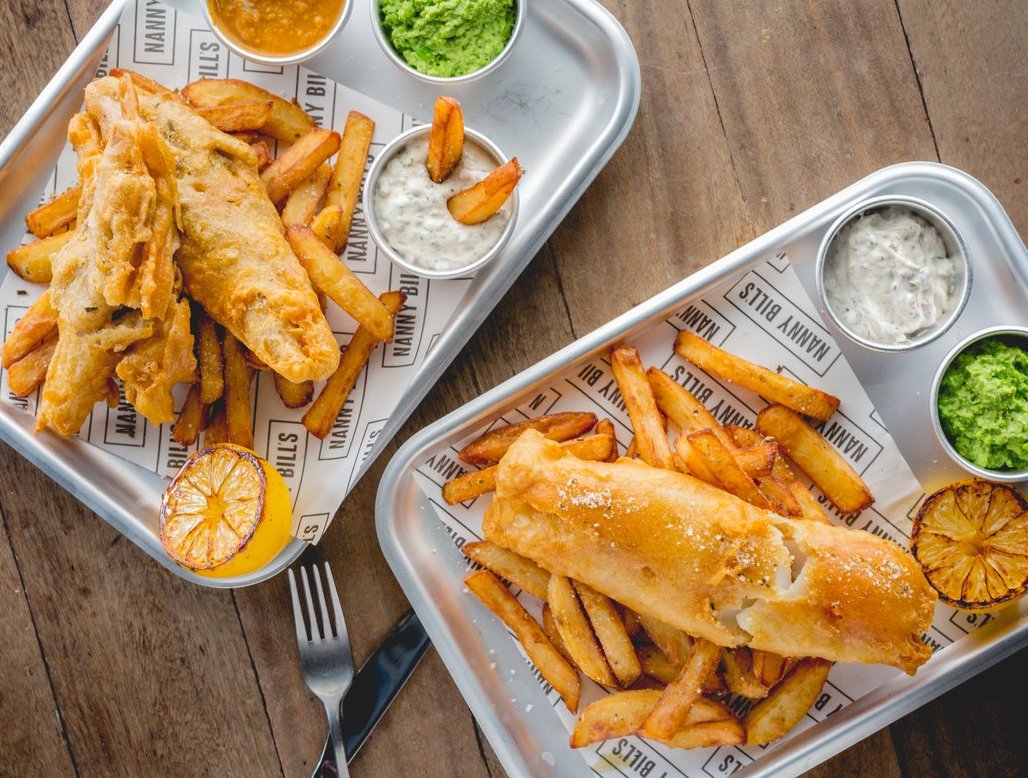4 Mins Read
Banana Blossom Fish & Chips? No thank you, says Columnist Smita J.
Editor’s Update: This piece has ignited much discussion, which we are thrilled about. In one such discussion, a friendly soul pointed out to that it could be read as an attack on veganism, which we are not thrilled about. At Green Queen, we believe veganism is the kindest, most compassionate way to live and we support this choice fully. This piece is intended to make our readers think about our food system and supply chain as a whole, keeping in mind that it’s not a perfect world, and no one can claim to make perfect food choices every day. It’s about trying our best within our means and within our local environments, keeping an open mind and informing ourselves as much as possible.
In her second Green Queen column, Malaysian conservationist Smita J takes on a controversial topic: what happens when a native ingredient achieves cult status among the global health & wellness mafia, becomes over-used by food companies, chefs and recipe bloggers alike, negatively disrupts local agricultural systems, and why frankly, she’s over it.
I recently read an article in the Guardian about how banana blossoms are the next “it” meat substitute.
Because veganism is now taking off in the Global North (apparently 1 in 8 people in the UK are plant-based), people need more meat substitutes: tofu, tempeh, seitan, jackfruit – now banana blossoms.
Frankly, I am over it. I grew up eating all the new “superfoods”: jackfruit, banana blossoms, moringa, etc, because they are staples in South Indian and South East Asian traditional cooking. I am sick of the Global North “discovering” and then commodifying all the traditional foods of the Global South, all in the name of health and morals and ethics. It is nothing less than cultural appropriation of food, a type of neo-colonialism catering to the privileged vegans of the Global North.
When a crop is commodified into mass scales and monoculture, everything goes wrong: biodiversity loss, displacement of people, loss of traditional way of life, labour abuses, pollution. Think palm oil, a cultural and traditional staple in West Africa; avocados, now in the hands of drug cartels in Mexico; tofu and tempeh, one is East Asian and the other is South East Asian, both are traditional foods in their own rights that have been appropriated by the West.
It’s not the actual food we are eating that is the problem, it is the system of source to plate. Millions of people are taking industrialised meat off their plates. Fair enough. But the issue isn’t eating meat per se. Rather it’s the current system of mass producing meat that is so destructive. Is mass producing plants going to be any better?
Vegan bloggers, pundits and anyone out there advocating veganism: I hope you are NOT promoting foods that:
- Cause deforestation and cartel-like violence like avocados in Mexico.
- Price out local communities from their traditional foods e.g. avocados in Kenya, quinoa in Bolivia and Peru.
- Have human rights abuses in their supply chain such as child labour for cocoa harvesting in Ghana and Ivory Coast.
- Are dependent on animal abuse like the monkeys trained to pick coconuts on taller trees in Malaysia, Sri Lanka and Thailand.
- Require harsh working conditions and below level decent wages such as the women shelling cashews in India and suffering burns for a pay of less than £2 a day.
- End in water mismanagement like almonds growing in drought areas in California.
- Produce high greenhouse gas emissions, with fresh produce being air-freighted from thousands of kilometres away.
- Result in pesticides/chemical fertilisers usage and soil erosion runoff causing river pollution due to intensive monocultures.
- Decrease soil fertility through monocropping and lack of crop rotation.
These are just the the tip of the iceberg when it comes to the issues arising from using the same conventional, monocrop agricultural methods, whether animal agriculture or vegetables farming or feed for animals.
I hope this gets you thinking, motivates you to investigate your local food biodiversity and get creative. The vegan movement is a victim of its own success; to actually improve our environment and social issues the system of source to plate must change.
The current brand of veganism is substituting one food for another in the same industrialized system. I hope that the vegan movement can be tolerant and respectful of traditional, indigenous practices of sustainable food; people who never partook in the industrialisation of food until it was forced on them. Even Greenpeace issued a formal apology to the Inuit people of Canada for targeting their traditional hunting practice.
Remember, it is the system of food production that’s messed up, not the food itself. To everyone working sustainability of our food “systems”, how about focusing on fixing the system and not substituting to give a false sense of morality. We are living in an age of food surplus where most food produced is wasted, we are consuming too much of it and at the expense of those without privilege. There are extremes of overconsumption and starvation.
To all vegan bloggers and chefs, I urge you to do your best to ensure that your recipe ingredients can be:
- Locally grown and sourced
- Seasonal
- High in diversity
- Cruelty-free to humans
- Respectful of local traditions or customs
- Regenerative to their local environment
- Part of increased associated plant and animal biodiversity
Lead image courtesy of Antic Pubs on Twitter, featuring Nanny Bills Banana Blossom Fish & Chips.




